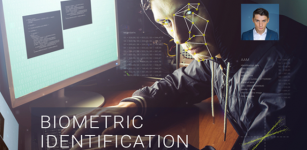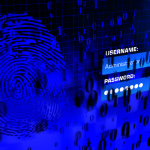Facial Recognition Database Could Lead to Wrongful Arrests

State and territory leaders have agreed to hand over driver licence photos to enable the federal government to create a national database for biometric face-matching.
It is claimed the technology will be able to instantly ‘match’ CCTV images with those on the database, thereby identifying individuals and their movements across various locations such as public transport stations, on trains and buses, in sports stadiums, at airports and a range of other places which are accessible to the general public.
The scheme has been likened to futuristic science fiction movies such as Jason Bourne and Mission Impossible, where authorities are able to instantly identify and monitor those captured by CCTV cameras.
But unlike the way facial recognition technology and information databases are portrayed in feature films, they are far from infallible.
False matches
Clare Garvie, a US-based privacy lawyer who researches the risks of facial recognition technology, points to the fact that there have been many cases of wrongful arrests in the US and even prosecutions and convictions, after software incorrectly matched faces on surveillance footage with images on state and/federal databases.
Ms Garvie explains that a range of factors can reduce the accuracy of a declared match – including camera distance, angle, lighting, resolution and distortion. She says that in many cases where the software is unable to initially declare a match, law enforcement agents lower the threshold in order to facilitate one.
She asserts that police departments have even been known to set software to a low threshold, whereby several matches are declared to a single image.
Ms Garvie further explains that due to the variables involved, matches declared using facial recognition technology that examines CCTV images are far less reliable than images matched on platforms such as Skype and smartphones, which have the benefit of close-up, full-frontal, well-lit images.
“At a recent biometrics industry conference,” Ms Garvie stated “the [facial recognition technology] was designed so that people who looked 50% or more similar to the wanted suspect were flagged as a possible match.”
The problem of a false match is said to be compounded when it comes to minority groups such as ‘Blacks’ and ‘Asians’, where the technology is more likely to declare a match.
“It is hard to see how this [system of matching] would comply with international law,” says Adam Molnar, a lecturer in criminology at Deakin University.
“It is mass undifferentiated surveillance that can be used regardless of innocence and no participation in a criminal activity.”
Honey pot for hackers
Another criticism of the proposed scheme is that it will attract hackers who are keen to access – and even manipulate – information on the information-rich database.
David Vaile, head of the Cyberspace Law and Policy Centre at the UNSW, points out that:
“Biometric identifiers unlike any other identifier can’t be revoked”, adding “You can’t say ‘I am going to change my face’. So once it is hacked you potentially have a lifelong problem.”
But prime minister Turnbull remains undeterred, stating “You can’t allow the risk of hacking to prevent you from doing everything you can to keep Australians safe”.
Creating fear to justify removal of privacy
The proposed scheme has also been criticised by the president of the NSW Council for Civil Liberties (NSWCCL), Stephen Blanks.
He has accused the government of “whipping up fear” to facilitate an unwarranted and highly intrusive increase in state surveillance.
He noted that crime rates in NSW are at twenty-year lows, questioning how the unparalleled increase in surveillance can be justified in those circumstances.
“Totalitarian governments who want to abuse their position often find databases of this kind very useful to pursue unacceptable policies,” he stated.
Politicians see civil liberties as a “luxury”
But state premiers including Gladys Berejiklian and Daniel Andrews have no issue with diminishing civil liberties.
“I think all of us have had to accept that our civil liberties from time to time aren’t what they used to be in order to protect public safety – so anything that would assist authorities in preventing and identifying suspects would be welcome news for New South Wales,” Ms Berejiklian stated.
“There are people that are going to be talking about civil liberties,” Mr Andrews said.
“Frankly that talk is a luxury that is available to them, it is not available to political leaders in this country”, adding “We are going to have to curtail the rights and freedoms of a small number of people in order to keep the vast majority of Australians safe”.
These politicians seem to ignore the fact that such schemes do not simply involve a “small number” of people; they in fact compromise the civil liberties of us all.






